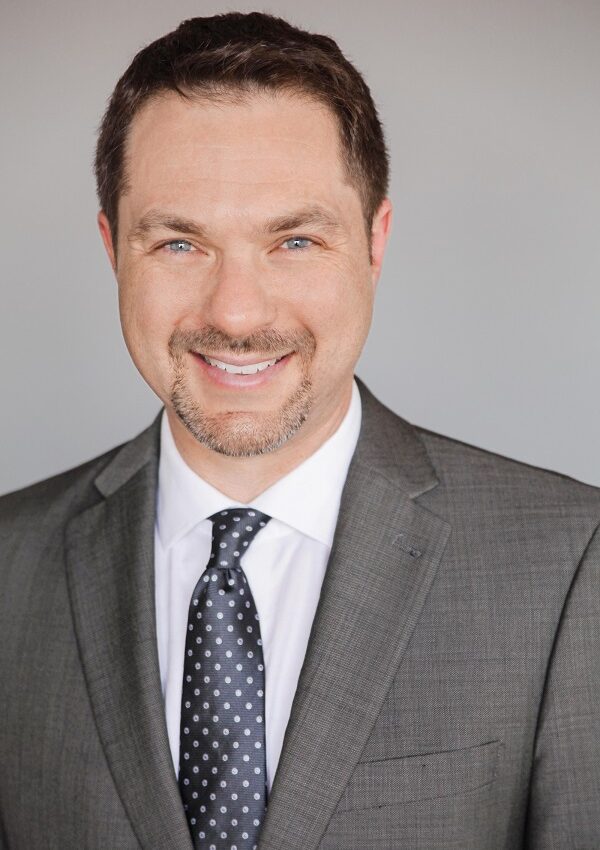The Court: J. Client case number.
Mr. Rosenfeld: Morning, Your Honor, Mark Rosenfeld appearing 97 7 on behalf of Mr. Client.
The Court: Mr. D.A. for the people. This matter was continued from October 13th to today’s date. The court had ordered a transcript regarding the 1538 and we put over defense counsel’s objection; however, he did waive time to put it over to this particular date. This is a check point case. Mr. D.A., you have your witnesses here in court?
Mr. D.A.: I do, Your Honor.
The Court: How many witnesses do you have for today?
Mr. D.A.: Two witnesses, Sergeant Philip Brooks and Detective Richard Curry. I want to put on the record the people provided the copy what’s known as the sobriety check point packet, relating to the check point in this case on June 28.
The Court: And you received that, Mr. Rosenfeld.
Mr. Rosenfeld: Yes, I received a packet, pages three of 20 through 20 of 20. I received that. I’ve had a chance to review that, and the defense would continue to object to the hearing going forward. I would like to be heard before we take any additional testimony. I would ask any non-testifying witnesses being excluded.
The Court: First your motion to exclude all witnesses is granted. Have them both step outside for a moment. Both of the witnesses have stepped outside of the courtroom, Mr. Rosenfeld.
Mr. Rosenfeld: Thank you very much. The defense would just object to continuing the hearing and request that the court rule based on the evidence before the court at this time. I don’t believe that there’s good cause or proper justification to allow the People to reopen again. One of the concerns that the People were discussing last time was notice after having an opportunity to review the transcript. I don’t believe that notice is a valid justification for a continuance of this case and to allow any additional testimony. In addition, to the moving papers, the court clarified on the record. I’m looking at page 3 of the transcript where the court inquires as to what the scope of the motion is; People inquired as well what the scope of the motion is, and that was laid out. I mean, the court inquired what I was contesting. I said, I was contesting the stop, and you asked, “Just the stop,” and I informed the court and the people that it was a check point, and the People then on line 23 asked for further clarification, and that was given to the People. So I don’t feel that there’s any reason that we need to reopen and take additional evidence. Thank you, your Honor.
The Court: As I stated back on page 59 and 60 of the transcript, you had filed both a boilerplate motion. There was a stipulation that there was no search warrant or arrest warrant and that this was regarding the stop. There was no indication that you were attacking the foundation of the check point, and as I stated back at that point in time after we took witnesses and had witnesses recalled, what became troubling to me was when Mr. D.A. called your office trying to clarify the witnesses that he was going to be needing clarification, and it was not forthcoming, indicating that you did not have to basically do his work for him.
Mr. Rosenfeld: Well, I believe that it’s more than that. I believe I have an ethical obligation not to have the prosecution prove their case. I don’t hide the ball. If they called again showing that they had notice of what the issues would be, and they asked, and they were told they needed to call whomever they feel is necessary, I think that’s an appropriate answer. I’m not going to mislead them and have them call officers that are irrelevant, and lead them to call officers that are relevant. It’s their job to put on the witnesses that they feel are appropriate, and I don’t think that would be my job. I don’t think that the state bar would approve of me telling the prosecution what witnesses to call to prove their case.
The Court: But as we discussed last time, I think your notice could have just stated that you’re challenging the check point period without anything else; that’s not telling them what witnesses they are going to need or what element of the check point you’re challenging, so your objection is noted for the record and overruled. Do you want to be heard on anything else or call your first witness?
Mr. D.A.: No, the people are prepared to call their first witness.
Mr. Rosenfeld: Your Honor, thank you for allowing me to be heard.
Mr. D.A.: People call Sergeant Philip Brooks.
The Court: Sergeant, face in my direction and raise your right hand in order to be sworn.
The Clerk: Do you solemnly state that the testimony you may give in the matter now pending before this court shall be the truth, the whole truth, and nothing but the truth, so help you God?
The Witness: I do.
PHILIP BROOKS
Called as a witness by the People was sworn and testified as follows:
The Clerk: Thank you. Please be seated. Please state and spell your first and last name for the record.
The Witness: Phillip Brooks, P-H-I-L-I-P, B-R-O-O-K-S.
The Court: Sergeant Brooks, you’re going to be asked a series of questions by both attorneys. Use a loud and clear voice so everybody can hear you, at a reasonable pace, so the young lady in front of you gets it down.
MR. D.A.
DIRECT EXAMINATION
By Mr. D.A.:
Q: Good morning.
A: Good morning.
Q: What is your occupation and assignment?
A: Deputy Sheriff assigned to Malibu Lost Hills Station.
Q: How long have you been a Deputy Sheriff?
A: Thirty years.
Q: And how long have you been assigned to Malibu Station Lost Hills Station?
A: Eleven years.
Q: And what are your background, training and experience with regard to setting up sobriety check points?
A: I’ve received the sobriety check point management course from the office of traffic safety put on by the California Highway Patrol. There’s also a ride course with the office traffic safety submitted by highway patrol, and I’ve had the general field sobriety test with the department.
Q: What did that consist of?
A: Identification of impaired drivers.
Q: And for how many of your 11 years at Lost Hills have you been investigating impaired driving?
A: The entire time.
Q: Do you know how many sobriety check points you set up in those 11 years?
A: More than 100.
Q: And were you in charge of planning the sobriety check point that was conducted on June 28, 2013, at the intersection of PCH and Carbon Canyon?
A: Yes.
Q: What was your process in setting that up?
A: Well, first of all, I look at the statistics for impaired driving collisions in the city of Malibu on PCH. Based on those statistics, I determined that the highest probability for a collision was in the corridor of PCH near Carbon Canyon. So that’s one of the criteria I use for determining the check point location. Second, I have to consider the actual feasibility and the road width and the availability of parking for investigations. So I use…I determined the Carbon Canyon would work the best in that respect.
Q: When you made this determination, did you, in fact, was there a study that was conducted?
A: Yes, I use our station statistics regarding collisions for the past four years from 2009 through 2012, and according to that, the number of D.U.I. Crashes in the Carbon Canyon area was the highest at 26 and with the second highest being six down by Tuna Canyon.
Q: And were you in charge of determining the time for the check point?
A: Yes well, the grant comes from the office of traffic safety so we cannot start a check point prior to 6:00 P.M. So we begin setting up at 6:00 P.M. And begin the check point approximately 7:30 which was based on my decision.
Q: Okay. And did it run and it was on a Friday evening, is that correct?
A: Yes, that was a Friday night.
Q: Okay. And the total length of time for the check point that was in effect was 7:30 in the evening till 3:30 the following morning?
A: Yes, that’s correct.
Q: And was there any significance for that time period?
A: That’s the time period where we mostly do encounter impaired drivers, the highest impaired drivers based on O.T.S. Studies as it occurred during that time period and it matches fairly well with the data we collect from our impaired driving arrest and collisions in the PCH Malibu Area.
The Court: O.T.S. is office.
The Witness: Office traffic safety state.
By Mr. D.A.:
Q: Did you decide who was going to be planning the check that night?
A: With the assistance of Detective Curry, we hire trained deputies to man the check point who have also attended the arider training.
Q: Did you provide any training in advance for these officers before the check point took place?
A: The officers in the check point have received the aride training and I do preshift briefing, explaining the process of what we’re going to be doing while working the line of check point.
Q: What was the process for these officers to follow in conducting the check point?
A: Yes, they follow the script as to greeting the driver, explaining that they’re there for impaired driving check point, and additionally, they request to see the driver’s license. At that time, they examine the driver to see if there’s any signs of intoxication and if so, they will have the driver exit the vehicle and perform a further investigation on the side of the road.
Q: Okay.
The Court: How do they conduct that examination of the driver before the person gets out?
The Witness: The initial screening by talking to the driver, asking him questions, leaning in to see if they can smell the odor of alcoholic beverages or other intoxicants, and based on his speech and his eyes, they make a determination whether he’s suitable to continue a follow-up investigation.
The Court: Thank you.
By Mr. D.A.:
Q: Was there inquiry to be limited to those areas that you just testified to?
A: Yes, that’s correct, unless they obviously saw evidence of a crime, for example, a weapon in the vehicle. They were just limited to the D.U.I. investigation.
Q: Were you present at the check point from 7:30 until 3:30 A.M.?
A: Yes.
Q: And from what you observed, were officers following that criteria?
A: Yes.
Q: Was there a formula also or procedure for which cars were stopped at the check point?
A: Yes.
Q: How did that work?
A: The formula that I instructed them to use was to stop every car. As I watched the check point and I see traffic backup about 600 yards from my experience that makes the wait more than 20 minutes; there’s actually a red house on PCH South of Carbon Canyon that I use as a marker. Once traffic reaches that point, on my determination, the backup is excessive, and I instruct the deputies to stop screening cars until it reduces down to a level that it becomes inconvenient to the drivers and I instruct them to begin screening again.
The Court: So you’re verbally giving those instructions at that time?
The Witness: Yes, on the radio. No one but me is allowed to change the formula for stopping cars.
The Court: All right.
By Mr. D.A.:
Q: Is there any particular formula for the cars that are stopped? I mean, is every single car, the ones aside from the ones that you allow to pass through, the ones that are stopped, is every single car investigated?
A: Yes, every car is screened unless I’ve instructed them to stop screening cars for a period to allow the traffic to reduce.
Q: Was any consideration given to the maintaining safety for motorists and the officers, and if so, what was it?
A: Based on my knowledge and investigation of Pacific Coast Highway part of my determination of the location, the check point, is based on officer safety and to provide a well-lighted area, safe area with sufficient width to conduct investigations and allow us to block closed lanes so that the officers are protected by parked black and white vehicles.
Q: Were you responsible for publicizing in advance the check point?
A: Actually Deputy Curry puts out the press release.
The Court: So the answer is you did not, is that correct?
The Witness: That’s correct.
By Mr. D.A.:
Q: Based on your presence at the check point, was there any diversions from the formula or the instructions that you gave to the officers in advance?
A: No, that’s not allowed; they’re not allowed to.
Q: Did you observe the stop for the defendant in this case, Mr. Carlos Client?
A: I don’t believe so, no.
Mr. D.A.: No further questions.
The Court: Mr. Rosenfeld, cross.
Mr. Rosenfeld: Thank you, Your Honor. Cross-Examination.
By Mr. Rosenfeld:
Q: Good morning, Sergeant Brooks.
A: Good morning.
Q: How are you doing today?
A: Been better, but I’m okay.
Q: Sorry you’re not 100 percent. I do have a few questions I’d like to ask you. Did you have a chance to talk to the district attorney before testifying today?
A: Yes.
Q: And did you discuss what you were going to testify about?
A: Again who’s going to answer which questions about the check point.
Q: And what is Deputy Curry going to talk about?
A: He’s going to talk about sending the notice ahead of time out and the actual signing and cones of the check point.
Q: All right. Did you review any documents with the district attorney before testifying today?
A: I have a packet of the arrest, but that really doesn’t apply to the testimony today.
Q: Did you review any documents other than the arrest report?
A: No.
Q: Did you bring any other documents with you?
A: No.
Q: Did you do any research before coming to court to testify?
A: No.
Q: Did you pull any reports?
A: No.
Q: Did the district attorney go over the transcript from the first part of the hearing with you?
A: No.
Q: Are you in charge with the funding for this check point?
A: I’m not sure I understand.
The Court: Just rephrase it.
Mr. Rosenfeld: Sure.
Q: Who paid for this check point?
A: It’s funded through a grant from the Office of Traffic Safety.
Q: Were you involved in getting that grant?
A: I instructed Deputy Curry to apply for the grant.
Q: Okay. Do you know how much money was obtained by the L.A. County Sheriffs in that grant for this check point?
A: I don’t know for the entire department; however, our station received an excess of $100,000 for grants.
The Court: The question was for this particular check point on this particular date, so the $100,000 is not just for this particular date to your station?
The Witness: That’s the entire grant for a 12-month period.
The Court: Twelve-month period for all check points out of the Lost Hills Station?
The Witness: Correct, Sir.
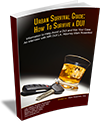

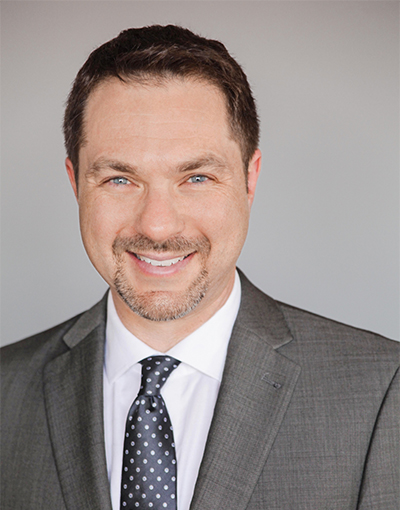
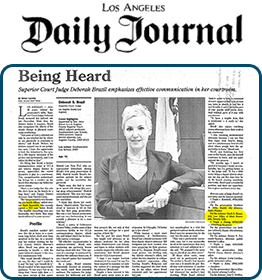
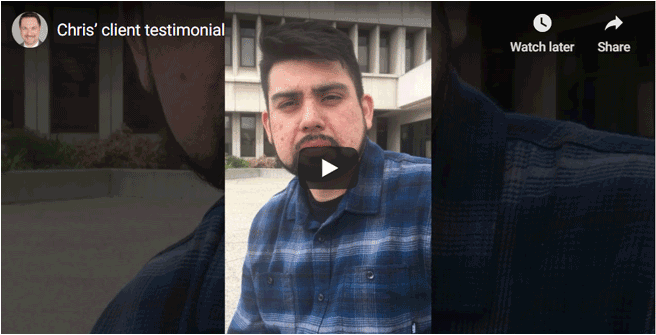
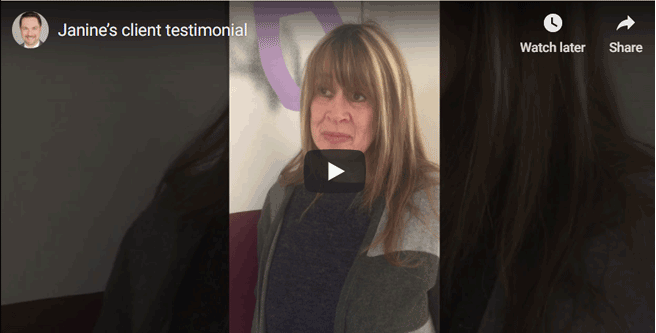
 Personal Attention
Personal Attention Every criminal case is unique and no attorney can guarantee the outcome of a case. The information on this site is legal advertising and for general information only. Using this site, requesting books, information, consultations or communicating with Attorney Rosenfeld through its site does not form an attorney/client relationship.
Every criminal case is unique and no attorney can guarantee the outcome of a case. The information on this site is legal advertising and for general information only. Using this site, requesting books, information, consultations or communicating with Attorney Rosenfeld through its site does not form an attorney/client relationship.
